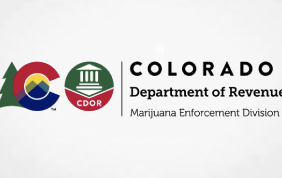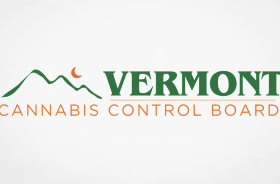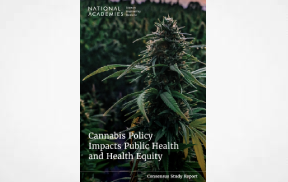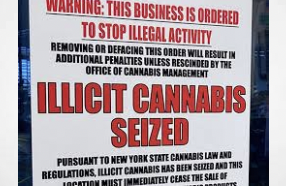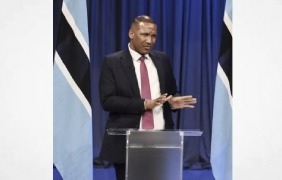Summary
AI Generated by Perplexity
The main legal issue in United States v. Sirois appears to be related to the prosecution of defendants involved in Maine’s medical marijuana program.
Specifically:
- The case involved charges against Lucas Sirois, Alisa Sirois, Robert Sirois and others for Conspiracy to Distribute and Possess with Intent to Distribute Controlled Substances (Marijuana), in violation of federal law
- The defendants filed motions to dismiss or enjoin the prosecution, arguing that the government’s investigation and prosecution violated the Rohrabacher-Farr Amendment, which prohibits the Department of Justice from using funds to prevent states from implementing their own medical marijuana laws
- The court had to determine whether to dismiss the case or enjoin further proceedings based on the defendants’ claim that the prosecution violated this congressional appropriations rider
- The court ultimately denied the motions to dismiss/enjoin, concluding that:
- There was substantial evidence to support the investigation and prosecution
- The state of Maine had requested an investigation into possible violations of medical marijuana program rules
- The prosecution did not undermine Maine’s implementation of its medical marijuana program
- The defendants did not have a private right under the amendment to compel the government to prove its case in advance of trial
So in essence, the main legal issue centered on whether the federal prosecution of these defendants involved in Maine’s medical marijuana program violated congressional restrictions on using federal funds to interfere with state medical marijuana laws.
What were the main arguments against the Sirois Defendants’ motion to enjoin prosecution
- The government had a substantial evidentiary basis for both the investigation and prosecution of the defendants
. The court reviewed the government’s actions using a “substantial evidence standard based on administrative law
- The burden was on the Sirois Defendants to show that the investigation and prosecution were unsubstantiated, which they failed to do. Their arguments were deemed more suitable for raising doubt at trial rather than demonstrating a lack of substantial evidence for the investigation and prosecution.
- The State of Maine, through its Office of Marijuana Policy, had requested an investigation based on reports of black market sales and possible violations of medical marijuana program rules. This request from the state undermined the defendants’ claim that the prosecution violated the Rohrabacher-Farr Amendment.
- The court concluded that the defendants did not have a private right under the Rohrabacher-Farr Amendment to compel the government to prove its case in advance of trial
- While the defendants argued that the prosecution lacked evidence against some individuals, the court found that this did not negate the overall substantial basis for the investigation and prosecution
- The court determined that enjoining the prosecution based on the Rohrabacher-Farr Amendment would be “ill-advised” given the state’s request for investigation and the evidence presented.
In essence, the court found that the government had sufficient basis to proceed with the investigation and prosecution, and that the Rohrabacher-Farr Amendment did not provide grounds to dismiss or enjoin the case against the Sirois Defendants.
- The Government argued that it had a substantial evidentiary basis for both the investigation and prosecution of the defendants. The court reviewed the government’s actions using a “substantial evidence standard based on administrative law”.
- The Government contended that the burden was on the Sirois Defendants to show that the investigation and prosecution were unsubstantiated, which they failed to do.
- The Government highlighted that the State of Maine, through its Office of Marijuana Policy, had requested an investigation based on reports of black market sales and possible violations of medical marijuana program rules. This state request undermined the defendants’ claim that the prosecution violated the Rohrabacher-Farr Amendment.
- The Government maintained that the prosecution did not undermine Maine’s implementation of its medical marijuana program.
- The Government argued that the defendants did not have a private right under the Rohrabacher-Farr Amendment to compel the government to prove its case in advance of trial.
- The Government presented evidence during a hearing to demonstrate that there was substantial basis for both the 2018 investigation and the decision to prosecute. The court found that this evidence was sufficient to show that the Department of Justice had not expended federal dollars in a manner that would “prevent Maine’s medical marijuana laws from having their intended practical effect”.
- While some investigative activity occurred prior to 2018, the Government argued that these early efforts did not amount to anything that would have practically prevented or interfered with Maine’s implementation of its medical marijuana program.
In essence, the Government defended its actions by demonstrating a substantial evidentiary basis for the investigation and prosecution, emphasizing the state’s request for investigation, and arguing that its actions did not violate the Rohrabacher-Farr Amendment’s restrictions on federal interference with state medical marijuana laws.
Based on the search results, the court’s decision in United States v. McIntosh had several important implications for future cases involving medical marijuana:
- Limited DOJ powers: The ruling limited the Department of Justice’s ability to prosecute certain marijuana growers in states with medical marijuana laws. The court found that the Rohrabacher Amendment prohibits the DOJ from spending funds to prosecute individuals who comply with state medical marijuana laws
- Temporary protection: However, the court emphasized that this protection is temporary and dependent on continued congressional funding restrictions. The court noted that “Congress could appropriate funds for such prosecutions tomorrow”
- Ongoing legal uncertainty: The decision highlighted the ongoing legal ambiguity surrounding medical marijuana. While it provided some protection for compliant growers, it also reaffirmed that marijuana production remains a prosecutable crime under federal law
- Importance of annual riders: The ruling underscored the critical importance of the annual Rohrabacher Amendment for the medical marijuana community, as it provides the main legal protection against federal prosecution
- Potential for future challenges: The court’s interpretation of the Rohrabacher Amendment language leaves room for potential future legal challenges, as it does not explicitly prohibit all prosecutions in medical marijuana states
- Impact on regulatory agencies: More recent court decisions, influenced by the Supreme Court’s ruling on the Chevron doctrine, have further complicated cannabis law by reducing deference to regulatory agencies like the DEA. This may lead to more judicial interpretation of complex regulations
- State-level implications: The decision may prompt more states to enact their own legislation to address gaps in federal law and regulation of cannabis products
In essence, while the McIntosh decision provided some protection for medical marijuana operators, it also highlighted the precarious legal situation and the need for more comprehensive federal legislation to provide long-term certainty for the industry.
UNITED STATES v. SIROIS (2024)
United States Court of Appeals, First Circuit.
UNITED STATES of America, Appellee, v. Lucas SIROIS; Alisa Sirois, Defendants-Appellants.
Nos. 23-1721, 23-1723
Decided: October 15, 2024
Before Barron, Chief Judge, Gelpí and Rikelman, Circuit Judges.
Timothy C. Parlatore, with whom Elizabeth Candelario, Parlatore Law Group, LLP, Eric Postow, and Holon Law Partners were on brief, for appellant Lucas Sirois. Ronald W. Bourget, with whom Law Offices of Bourget & Banda were on brief, for appellant Alisa Sirois. Benjamin M. Block, Assistant United States Attorney, with whom Darcie N. McElwee, United States Attorney, was on brief, for appellee.
In each fiscal year since 2015, Congress has included in its annual appropriations bill a rider that provides:
None of the funds made available under this Act to the Department of Justice may be used, with respect to any of [an enumerated list of states and territories, including Maine], to prevent any of them from implementing their own laws that authorize the use, distribution, possession, or cultivation of medical marijuana.
Consolidated Appropriations Act, 2023, Pub. L. No. 117-328, § 531, 136 Stat. 4459, 4561 (2022). This rider is commonly referred to as the “Rohrabacher-Farr Amendment.”1
Based on this provision, Lucas Sirois and Alisa Sirois seek to enjoin the United States Department of Justice (“DOJ”) from prosecuting them for offenses related to their cultivation and distribution of marijuana under the Controlled Substances Act (“CSA”), 21 U.S.C. §§ 801-904. The defendants do so on the ground that the conduct for which the DOJ investigated and indicted them under the CSA was in “substantial compliance” with the Maine Medical Use of Cannabis Act (the “Act”), Me. Rev. Stat. Ann. tit. 22, § 2421 et seq.2 That measure, which was enacted in 2009, sets forth conditions under which it is lawful under Maine law to possess, use, cultivate, and distribute marijuana for medical purposes.
The United States District Court for the District of Maine denied the defendants’ request for injunctive relief, and they now challenge the ruling in these consolidated appeals. We affirm.
I.
We begin by describing the legal landscape — both state and federal — that bears on the issues before us. We then review the procedural path that led to these appeals.
A.
As relevant here, the Act and its associated regulations permit, for purposes of Maine law, individuals who participate in the Maine Medical Use of Marijuana Program (“MMMP”)3 as “caregivers” and caregiver “assistants” to engage in certain “authorized conduct” “for the purpose of assisting ․ qualifying patient[s] with the patient[s’] medical use of marijuana.” Id. § 2423-A(2). To participate in the MMMP, caregivers and assistants generally must register with and be licensed by Maine’s Office of Cannabis Policy (“OCP”).4 See id. § 2425-A. The OCP, an office within Maine’s Department of Administrative and Financial Services, is tasked under the Act with administering the MMMP. Id. § 2422-A; 18-691-001 Me. Code R. § 1.
A registered caregiver may pay registered assistants to perform services related to the cultivation and distribution of marijuana. Me. Rev. Stat. Ann. tit. 22, § 2423-A(2)(I). A caregiver may cultivate up to six mature marijuana plants, twelve immature marijuana plants, and unlimited marijuana seedlings on behalf of each qualifying patient who has designated the caregiver as the patient’s caregiver. Id. § 2423-A(1)(B). No caregiver may cultivate more than thirty mature plants or more than sixty immature plants at any one time. Id. § 2423-A(2)(B).
Caregivers who are authorized to cultivate marijuana on behalf of at least one qualifying patient are required to keep their cultivated marijuana plants in a “cultivation area” unless the plants are being transported for an authorized purpose. See id. § 2423-A(3)(B). As part of the OCP registration process, a caregiver who is authorized to cultivate marijuana is required to disclose to the OCP the location of her cultivation area. 18-691-002 Me. Code R. § 6(H)(1)(c). With limited exceptions, a cultivation area may only be accessed by the caregiver to whom it belongs and that caregiver’s registered assistants. Me. Rev. Stat. Ann. tit. 22, § 2423-A(3)(B).
Caregivers may “[r]eceive reasonable monetary compensation for costs associated with cultivating marijuana plants or assisting a qualifying patient with that patient’s medical use of marijuana.” Id. § 2423-A(2)(E). Caregivers may also wholesale, in exchange for “reasonable compensation or for no remuneration,” up to 75 percent of the mature marijuana plants and marijuana products that they produce in any given year to “other registered caregivers,” provided that the receiving caregivers do “not resell” those wholesaled plants and products “except to a qualifying patient or to another registered caregiver or dispensary to assist a qualifying patient.” Id. § 2423-A(2)(K-1).
Multiple caregivers are permitted to “operat[e] separately and occupy[ ] separate spaces within a common facility” so long as they “do not share [marijuana] plants or harvested [marijuana] resulting from the cultivation of those plants.” Id. § 2430-D(3). Caregivers may “share utilities or common areas” within that common facility. Id.
Caregivers are expressly prohibited from “form[ing] or participat[ing] in a collective.” Id. § 2430-D. A “collective” is “an association, cooperative, affiliation or group of caregivers who physically assist each other in the act of cultivation, processing or distribution of marijuana for medical use for the benefit of the members of the collective.” Id. § 2422(1-A).
The OCP is responsible for assessing caregivers’ and assistants’ compliance with the Act and its associated regulations. Noncompliance “may result in remedial action” by the OCP. 18-691-002 Me. Code R. § 10(A)(4). The remedial action that the OCP may take includes: “directed corrective action; suspension, revocation and denial of [OCP licensing]; civil penalties; and referral to the appropriate agency, department or entity if the conduct is determined to be outside the scope of MMMP, is not appropriate for agency directed corrective action, or has not been rectified through correct[ive] action.” Id. A caregiver who “sells, furnishes[,] or gives marijuana to a person who is not authorized to possess marijuana for medical purposes” is subject to mandatory license revocation by the OCP and is also “liable for any other penalties for selling, furnishing[,] or giving marijuana to a person.” Me. Rev. Stat. Ann. tit. 22, § 2430-F(2).
B.
Notwithstanding the Act and its associated regulations, federal law, through the CSA, makes it “unlawful for any person knowingly or intentionally to manufacture, distribute, or dispense, or possess with intent to manufacture, distribute, or dispense,” or possess marijuana. 21 U.S.C. §§ 841(a)(1), 844(a), 802(6) (defining the term “controlled substance” by referring to drug schedules), 812 sched. I(c)(10) (listing “marihuana” as a Schedule I controlled substance). Thus, the CSA makes the conduct permitted by the Act a federal crime.
In United States v. Bilodeau, 24 F.4th 705 (1st Cir. 2022), we addressed — for the first time in our Circuit — “whether and under what circumstances” the Rohrabacher-Farr Amendment “prohibits the [DOJ] from spending federal funds to prosecute criminal defendants for marijuana-related offenses” under the CSA. 24 F.4th at 708. Following the lead of the Ninth Circuit Court of Appeals in United States v. McIntosh, 833 F.3d 1163, 1176 (9th Cir. 2016), we concluded in Bilodeau that, by the terms of the Rohrabacher-Farr Amendment, “the DOJ may not spend funds to bring prosecutions if doing so prevents a state from giving practical effect to its medical marijuana laws.” 24 F.4th at 713.
We disagreed with our Ninth Circuit colleagues, however, as to how to determine “under what circumstances federal prosecution would prevent [a state] from giving practical effect to” its medical marijuana laws. Id. We rejected the determination in McIntosh that “defendants would not be able to enjoin their [CSA] prosecutions unless they ‘strictly complied with all relevant conditions imposed by state law on the use, distribution, possession, and cultivation of medical marijuana.’ ” United States v. Evans, 929 F.3d 1073, 1076 (9th Cir. 2019) (emphasis supplied by the Evans court) (quoting McIntosh, 833 F.3d at 1179). We reasoned that “the potential for technical noncompliance [with state regulatory regimes] is real enough that no person through any reasonable effort could always assure strict compliance,” and that “[t]o turn each and every infraction into a basis for federal criminal prosecution would upend [state regulatory regimes] in a manner likely to deter the degree of participation in [state] market[s] that the state[s] seek[ ] to achieve.” Bilodeau, 24 F.4th at 713, 714.
At the same time, we rejected in Bilodeau the suggestion by the defendants there that the Rohrabacher-Farr Amendment “must be read to preclude the DOJ, under most circumstances, from prosecuting persons who possess state licenses to partake in medical marijuana activity.” Id. at 714. We reasoned that “Congress surely did not intend for the rider to provide a safe harbor to all caregivers with facially valid documents without regard for blatantly illegitimate activity in which those caregivers may be engaged and which the state has itself identified as falling outside its medical marijuana regime.” Id.
Although we announced in Bilodeau our intention to “chart[ ] [a] middle course” with respect to the Rohrabacher-Farr Amendment’s application, we had no occasion there to “define its precise boundaries.” Id. at 715. We explained that was so because the “record [was] clear” that (1) the defendants’ efforts to appear compliant with the Act and its associated regulations were merely “facades for selling marijuana to unauthorized users” and (2) the defendants had engaged in a “large-scale ․ black-market marijuana operation” as a matter of Maine law itself. Id. On that basis, we affirmed the denial of the requested injunction. Id.
In other words, we made clear in Bilodeau that a party who seeks to enjoin their prosecution for an alleged marijuana-related CSA violation need not demonstrate “strict compliance” with a state’s laws and regulations that make the possession, cultivation, or distribution of medical marijuana lawful. Id. at 713. However, we did not attempt to decide precisely how compliant such a party must have been with such laws and regulations to be entitled to an injunction pursuant to the Rohrabacher-Farr Amendment.
C.
On November 9, 2021, a grand jury in the District of Maine indicted then-estranged spouses Lucas Sirois and Alisa Sirois, along with several other individuals, for conspiracy to distribute and possess with intent to distribute marijuana in violation of § 841(a)(1) of the CSA.5 Shortly after Lucas Sirois was indicted, he filed a “Motion to Enjoin Prosecution Pursuant to the Rohrabacher-Farr Amendment,” which Alisa Sirois subsequently joined.6 The motion contended that, because the defendants’ underlying conduct “[is] and [was] in compliance with” the Act, the DOJ was subjecting each of these defendants to “an unauthorized and illegal prosecution of a legal, licensed medical marijuana business.”
The District Court granted the defendants’ request for a hearing on the motion. In a procedural order prior to the hearing, the District Court determined that the movants bore the burden of persuasion but that the government bore “the initial burden of establishing the existence of a substantial evidentiary basis for both its investigative and prosecutorial decisions.” The District Court then determined that to establish that evidentiary basis:
[T]he record produced by the government should be such that a reasonable person might accept it as adequate to support the conclusion that the conduct under investigation was not only violative of federal law but also outside the bounds of what is authorized by Maine’s medical marijuana law, such that an investigation was warranted, and that the investigation, in turn, revealed evidence that warranted criminal charges.
The District Court elaborated, based on Bilodeau, that “the evidence should depict something more than a technical violation of Maine law.” At the same time, the District Court acknowledged “that the ‘precise boundaries’ ” of that requirement “are not at present well defined.” The District Court also explained that “[u]pon the government’s production of the record, the burden of persuading the court that the government’s investigation and prosecution were unsubstantiated will fall on the movants.”
The government objected to the procedural order and argued that “the operative question” should be “whether the defendants were in fact in substantial compliance with Maine’s law during the time period alleged.” (Emphasis omitted). Accordingly, the government argued that “the court’s ‘inquiry begins with the charged conduct,’ and it is the defendants’ burden to prove their substantial compliance with Maine law ‘at the time of their arrest.’ ” (Quoting United States v. Pisarski, 965 F.3d 738, 742-743 (9th Cir. 2020)).
The government also objected to the District Court’s order on an additional ground, arguing that the District Court’s “administrative law standard [would be] improperly applied here to a criminal grand jury investigation.” The government claimed that applying such a standard to that investigation would provide “an invitation to conduct a sweeping review into the origins and evolution of the investigation that resulted in the instant prosecution” and would “call[ ] into question the ‘presumption of regularity’ that applies to prosecutorial decision-making.” (Quoting United States v. Armstrong, 517 U.S. 456, 464, 116 S.Ct. 1480, 134 L.Ed.2d 687 (1996)). Relatedly, the government argued that applying the administrative standard in the criminal context would be “problematic” because, in order to meet the standard, the government “must produce materials to the defendants in advance of the hearing that they are not entitled to receive until the eve of trial, such as Jenks material for federal agents who are now obliged to testify, and the identities of cooperating witnesses who would otherwise continue to remain publicly anonymous.”
The District Court overruled the objection, and the hearing proceeded under the framework set forth by the District Court in its order. During the hearing, which was held over the course of three days in June 2023, the government introduced documentary evidence and presented testimony from eight witnesses. The testimony and evidence put forward by the government concerned, among other things, the operations of a medical marijuana “grow operation,” known as the “Shoe Shop,” located at 374 High Street in Farmington, Maine. The government witnesses included law enforcement officials, individuals who had worked at the Shoe Shop, an OCP official, and an individual who allegedly purchased marijuana from Lucas Sirois to sell on the black market.
The government witnesses testified that the operations of the Shoe Shop were directed primarily by Lucas Sirois and that Alisa Sirois assisted in the administrative operations of the Shoe Shop. There was also testimony submitted that Alisa Sirois split profits from the sale of Shoe Shop marijuana with Lucas Sirois. The government also introduced documentary evidence that it contended supported the testimony concerning the Shoe Shop and the involvement of Lucas Sirois and Alisa Sirois in its operations.
The government relied on the witnesses’ testimony and the documentary evidence to argue that the Shoe Shop operated, unlawfully, as a “collective” within the meaning of the Act. In addition, the government relied on the witnesses’ testimony as well as documentary evidence to argue that Lucas Sirois was involved in black-market sales of marijuana, in that the sales of marijuana were not directed to registered patients or caregivers within the meaning of the Act and its regulations.
Although Lucas Sirois and Alisa Sirois bore the burden of persuasion at the hearing under the District Court’s order, they did not put on any witnesses of their own. In his motion to enjoin the prosecution, Lucas Sirois did introduce evidence that the OCP, after an “On-Site Assessment,” issued a document that read “No finding of Non-Compliance on this date: 7/8/19.” He also submitted to the District Court two letters: one from Representatives Rohrabacher and Farr to then-U.S. Attorney General Eric Holder regarding the proper interpretation of the Amendment, and another from his counsel to the U.S. Attorney’s Office for the District of Maine detailing his compliance with the Act. He also submitted a caregiver compliance checklist. In addition, both Lucas Sirois and Alisa Sirois introduced evidence that they maintained OCP-provided caregiver registry licenses, along with documentation that the OCP rescinded its initial decision to suspend those registry licenses.
Following the presentation of evidence at the hearing, the parties made closing arguments. The District Court found that the government had met its burden of production, but that Lucas Sirois and Alisa Sirois had failed to meet their burden of persuasion. In explaining its conclusion that the movants had not carried their burden of persuasion, the District Court reasoned:
The presentation they made at the hearing and the argument presented in their post-hearing briefs are designed more to sow doubt as to the existence of knowledge on their part of the illegal distribution of Shoe Shop marijuana by others (in particular co-defendant Brandon Dagnese) and the failure of [the OCP] to find them in violation of Maine regulations during the pendency of the investigation.
The District Court then explained that, while such a presentation might be “effective” at a criminal trial, “it was not sufficient to demonstrate that either the decision to investigate or the decision to prosecute lacked a substantial evidentiary basis” or that either decision “was arbitrary of irrational.”7
The District Court acknowledged Alisa Sirois’s “observ[ation] that the Government’s presentation did little, if anything, to justify the grand jury’s indictment of [her] for participating in a black-market drug distribution conspiracy.” Nonetheless, the District Court explained that it was “not persuaded that the individual movants enjoy a private right under the Rohrabacher-Farr Amendment to compel the Government to prove its case in advance of trial.” (Citation omitted). The District Court further concluded that, “[i]n any event, given the evidence of both black-market transactions in Shoe Shop marijuana and the collective nature of the operation ․ the prosecution of Alisa [Sirois] ․ does not undermine Maine’s implementation of a medical marijuana program.” The District Court noted, too, that Alisa Sirois did not introduce “evidence to suggest the existence of special circumstances that would make it unreasonable to include [her] in a conspiracy prosecution.”
Finally, the District Court concluded that “an order enjoining prosecution ․ would be ill-advised here, as the State of Maine, through [the OCP], ultimately requested an investigation based upon, among other things, the report of black market sales by an insider and possible violation of the rule against collective grow operations.” Accordingly, the District Court denied the defendants’ motion to enjoin prosecution. The defendants timely filed these appeals, which then were consolidated.
II.
Ordinarily, we may exercise appellate review in a criminal case only “after conviction and imposition of sentence.” Midland Asphalt Corp. v. United States, 489 U.S. 794, 798, 109 S.Ct. 1494, 103 L.Ed.2d 879 (1989). In Bilodeau, however, we concluded we have jurisdiction under 28 U.S.C. § 1292(a)(1) over a party’s appeal from the denial of a motion to enjoin the party’s prosecution pursuant to the Rohrabacher-Farr Amendment. 24 F.4th at 711-12. We then further concluded that, in the alternative, we could “safely treat” a district court’s denial of a Rohrabacher-Farr injunction “as a collateral order” over which we have appellate jurisdiction pursuant to 28 U.S.C. § 1291. Id. (citing Cohen v. Beneficial Indus. Loan Corp., 337 U.S. 541, 546, 69 S.Ct. 1221, 93 L.Ed. 1528 (1949)). We thus proceed to the merits.
III.
We review the denial of an injunction for abuse of discretion. Waldron v. George Weston Bakeries Inc., 570 F.3d 5, 8 (1st Cir. 2009). “Within that framework, we scrutinize the district court’s findings of fact for clear error and its handling of abstract legal questions de novo.” Id. In conducting this review, “we may affirm the District Court on an independent ground if that ground is manifest in the record.” Brox v. Hole, 83 F.4th 87, 98 (1st Cir. 2023).
We held in Bilodeau that the party seeking an injunction pursuant to the Rohrabacher-Farr Amendment bears the burden of demonstrating that the challenged DOJ action would “prevent[ ] a state from giving practical effect to its medical marijuana laws.” 24 F.4th at 713, 715-16. Lucas Sirois and Alisa Sirois therefore bear that burden of proof here.8 United States v. Dockray, 943 F.2d 152, 155 (1st Cir. 1991) (“[A]bsent en banc consideration we are bound by our own precedent.”).
As we noted above, and as the District Court recognized, we did not announce in Bilodeau the precise level of compliance with state medical marijuana laws and regulations that a party must show to be entitled to enjoin a federal prosecution pursuant to the Rohrabacher-Farr Amendment. We concluded instead merely that the scale and nature of the movants’ noncompliance with the state’s medical marijuana laws and regulations in that case was so substantial that it sufficed to permit the prosecution to go forward notwithstanding the Rohrabacher-Farr Amendment. Id. at 715.
Based on their understanding of Bilodeau, however, Lucas Sirois and Alisa Sirois on appeal ask us to evaluate their request for injunctive relief based on a “substantial compliance” standard. Under this standard, according to Lucas Sirois and Alisa Sirois, they are entitled to such relief if the record shows, by a preponderance of the evidence, that they were in substantial compliance with the Act and its associated regulations at all relevant times. They then contend that we must reverse the District Court’s ruling denying their motion for injunctive relief because the record shows that they have met their burden to show that they were in substantial compliance.
The government does not contest the substantial compliance standard that Lucas Sirois and Alisa Sirois ask us to apply. Instead, the government contends that, even under that standard and notwithstanding the way the District Court proceeded below, we must affirm the District Court’s order denying the defendants’ motion to enjoin the prosecution because of what the record shows regarding Lucas Sirois’s and Alisa Sirois’s noncompliance in the relevant time period.
Before diving into the record, we emphasize that Lucas Sirois and Alisa Sirois each bears the burden of persuasion under the applicable standard for determining whether the expenditure of DOJ funds they seek to enjoin would “prevent [a state] from giving practical effect to” its medical marijuana laws. Bilodeau, 24 F.4th at 713; id. at 716 (“[P]arties seeking injunctive relief bear the burden of proving entitlement to that relief.”) (citations omitted). Moreover, the government put forth a significant amount of affirmative evidence of what the government contends was the movants’ noncompliance with the Act and its regulations. This evidence, according to the government, shows that the Shoe Shop operated as a “collective” and that Lucas Sirois engaged in “black-market sales” in violation of the Act and its regulations. Thus, to be entitled to the injunctive relief that they seek, Lucas Sirois and Alisa Sirois must show by a preponderance that, notwithstanding the affirmative evidence of what the government asserts is their respective noncompliance, it is more likely than not that they were in substantial compliance with the Act and its associated regulations. Cf. Pérez-Pérez v. Hosp. Episcopal San Lucas, Inc., 113 F.4th 1, 8 (1st Cir. 2024) (“[O]ne charged with proving a negative often relies on simply disproving the affirmative.”).
In assessing whether Lucas Sirois and Alisa Sirois have shown as much, we recognize that, because of the way that the District Court allocated the burdens of proof in denying the motion to enjoin the prosecution, we are not in the position of simply evaluating the District Court’s factual findings regarding whether Lucas Sirois and Alisa Sirois were in substantial compliance with the Act and its regulations. Nonetheless, as we observed above, “we may affirm the District Court on an independent ground if that ground is manifest in the record.” Brox v. Hole, 83 F.4th 87, 98 (1st Cir. 2023). As we will explain, we conclude that it is manifest from the record that the movants have failed to make the required showing, at least given not only what the record shows but also the arguments that they have put forth to us.
We start by considering Lucas Sirois’s grounds for challenging the District Court’s denial of his motion for an injunction. We then address Alisa Sirois’s grounds for challenging the District Court’s denial of her motion for the same kind of relief.
A.
Lucas Sirois concedes, as we observed in Bilodeau, that his mere possession of a state license to cultivate and distribute marijuana for medical purposes is not by itself necessarily proof that he was in substantial compliance with the Act and its regulations at all relevant times. See 24 F.4th at 714 (“Congress surely did not intend for the rider to provide a safe harbor to all caregivers with facially valid documents without regard for blatantly illegitimate activity in which those caregivers may be engaged and which the state has itself identified as falling outside its medical marijuana regime.”). He argues, however, that the evidence shows by a preponderance that he was in substantial compliance because (1) he remained a licensed OCP caregiver before, during, and following the conduct at issue here; (2) there was evidence in the record of his interest in complying with the Act and its regulations; and (3) the evidence at the hearing shows that, in “direct contrast” to the facts of Bilodeau, “75 [percent] of [his] sales were completely legal under Maine’s medical marijuana laws” and “there is no evidence of [him] conducting black market sales” of marijuana. We are not persuaded.
1.
We begin by setting to one side the evidence that the government put forward concerning Lucas Sirois’s involvement in black-market sales and focusing instead on what the record shows regarding whether the Shoe Shop operated at Lucas Sirois’s direction as a “collective” in violation of the Act. See Me. Rev. Stat. Ann. Tit. 22, §§ 2430-D, 2422(1-A). The government introduced significant affirmative evidence that the Shoe Shop did so operate. This evidence tended to show that the marijuana purportedly belonging to individual caregivers in fact belonged to Lakemont LLC, a limited liability corporation co-owned by Lucas Sirois and another individual, Randall Cousineau, who at no point was an OCP-registered caregiver. The government also put forth evidence that Lucas Sirois closely controlled the operations of the Shoe Shop and that Shoe Shop-affiliated caregivers, in exchange for weekly flat-rate payments, provided their caregiver licenses to others but did not participate in cultivating or selling marijuana.
For example, the government introduced a spreadsheet titled “Shoe Shop” that contains one column labeled “Income” and thirty-four columns, each labeled with the name of an individual, grouped under the heading “Caregivers.” The spreadsheet is further divided into rows that correspond to weekly periods. The government elicited testimony from Dave Burgess, who worked at the Shoe Shop, who confirmed the document was, as to that business, a “tally of the caregivers, maintenance people, and trimmers and what they got paid each week.” The amounts listed within each caregiver column generally repeat week after week without regular variation, even as the corresponding amounts listed in the “Income” column vary widely between from one week to the next. For example, in the weeks marked 2/17, 2/24, 2/28 and 3/6, income varies from $3,590 to $240,120, but the amounts listed in the caregiver columns generally repeat consistently throughout this period.
The government also introduced a services agreement signed by Lucas Sirois and a caregiver who had a grow room at the Shoe Shop. This agreement indicates that Lakemont would provide services including drying and curing, packing, production of marijuana extract, facilitating sales, and delivering marijuana for the caregivers.
Additionally, individuals who had worked at the Shoe Shop testified that, in exchange for flat weekly payments, they allowed marijuana to be grown and sold in their name and with their license without their necessary participation in cultivating marijuana, selling marijuana, or interacting with patients. For example, Juneva Stratton, who was an OCP-licensed caregiver and had a grow room at the Shoe Shop, testified that someone at the Shoe Shop applied for the OCP caregiver license on her behalf, that she “wasn’t involved in [the operations] at all,” and that she nonetheless received an envelope with cash in it every week from her daughter, who was herself a licensed caregiver who also was affiliated with the Shoe Shop. Burgess himself testified that he was paid weekly flat-rate payments to assign his caregiver license to a particular grow room, but he never did any work in the room; did not select, supervise, or pay the people who worked in the room; and did not participate in selling the marijuana grown in the room. In addition, a former Shoe Shop employee, Seth Neal, testified that Lakemont employed a number of “trimmer[s]” at the Shoe Shop who, rather than acting as assistants to individual caregivers, worked together to gather and process for distribution all the marijuana cultivated at the Shoe Shop.
The government also called OCP Director Vernon Malloch as a witness. Malloch testified that “sharing plants” and “sharing ․ proceeds” from marijuana transactions serve as a “bright-line distinction that [the OCP] look[s] at” to identify collectives. He further testified that if “a single caregiver facilitated the paperwork transaction to get [other caregivers] licensed, that would be a “red flag.” In addition, Malloch testified that a business entity comprised of multiple caregivers is “not authorized” and that such a company “[w]ould likely be considered a collective.” He testified, too, that a business model like that of Lakemont LLC, in which one OCP-licensed caregiver and one unlicensed individual share profits from the licensed caregiver’s distribution of marijuana, would be illegal under the Act. Finally, Malloch testified that if the OCP became aware of such an arrangement it “would make a referral to law enforcement” and “potentially take action against the caregiver who is partnering with [the unlicensed individual].”
Notably, Lucas Sirois does not directly dispute any of this testimony.9 Lucas Sirois does note that Stratton, Burgess, and Neal cooperated with the government or received immunity for providing truthful testimony. But he does not suggest at any point that, in consequence, we must disregard their testimony in assessing whether he has failed to show that he was in substantial compliance with the Act.
Lucas Sirois does state, in recounting the testimony of Stratton, that “Stratton obtained a caregiver card but knew nothing about the Shoe Shop than that her daughter worked there and paid her in cash.” But this lack of knowledge on Stratton’s part does not contradict Stratton’s testimony that someone at the Shoe Shop registered for a caregiver license on her behalf, that she did not participate in cultivating or selling marijuana, or that she was paid a flat rate as a caregiver. And Lucas Sirois does not dispute that he signed an agreement, introduced by the government, to provide Stratton professional services related to her growing and selling marijuana at the Shoe Shop as a licensed caregiver.
Lucas Sirois does also assert that Neal “had no knowledge of black-market sales,” but he does not suggest that Neal lacked knowledge of whether the Shoe Shop operated as he described it. And the same is true as to what he contends on appeal as to Burgess.
In responding more broadly to the government’s collective-related evidence, Lucas Sirois argues that the government only asserted that the Shoe Shop operated as a collective after the government had initiated an investigation of him for engaging in black-market sales. But, in highlighting that point, he does not argue — nor do we see how he could — that, in consequence, the government may only rely on evidence of black-market sales, and not on evidence of the Shoe Shop operating as a collective, to defend against his request for injunctive relief. So, we do not see how this point regarding the government’s initial black-market-sales-related theory of Lucas Sirois’s noncompliance provides us with any reason to disregard the evidence of the Shoe Shop having operated as a collective in assessing whether Lucas Sirois has met his burden to show his substantial compliance with the Act.
In support of the argument that he was in substantial compliance, Lucas Sirois does separately invoke our admonition in Bilodeau that technical noncompliance with a state’s medical marijuana laws would not suffice to defeat a request for an injunction under the Rohrabacher-Farr Amendment. See Bilodeau, 24 F.4th 705, 715. But, in doing so, he does not then go on to develop an argument that, even if the evidence established that he operated the Shoe Shop as a collective, his conduct in so running that operation would only constitute a technical violation of the Act and its regulations. Rather, he argues only that, given this admonition in Bilodeau, the government’s evidence of the Shoe Shop operating as a collective fails to constitute evidence of his substantial noncompliance because the record shows that the “[OCP] expressed concerns over this exact issue — a collective — and [Lucas] Sirois addressed them to [the OCP]’s satisfaction” as evidenced by the OCP reinstating his license and the OCP’s multiple investigations that resulted in no findings of noncompliance.
In advancing this argument, Lucas Sirois highlights evidence in the record that shows both that the OCP’s 2019 investigation into his operations resulted in no finding of noncompliance and that the OCP reinstated his caregiver license after it was suspended following the execution of federal search warrants. He then contends that “[t]o permit the Federal government to overrule the State’s determination of compliance with State law and find [him] in violation of federal law ․ is to fly in the face” of the Rohrabacher-Farr Amendment. (Emphases omitted).
But, as we noted above, Lucas Sirois concedes that state licensure does not in and of itself prove his substantial compliance with state law. Indeed, in Bilodeau, we held that the defendants were not entitled to injunctive relief because of the level of their noncompliance — notwithstanding the fact they, too, held caregiver licenses and were found to be “largely in compliance with Maine law” by state inspectors after an inspection. 24 F.4th 705, 710. Moreover, Malloch, the OCP Director, testified that the OCP’s actions in not finding noncompliance and reinstating a license following its suspension only indicate that the OCP found the caregiver in compliance on the “day that [the OCP] conduct[ed] the inspection for the elements [the OCP] inspected against.” Malloch also testified that the OCP’s enforcement of the Act and associated regulations occurred “a hundred percent [on] the honor system” due to the Office’s lack of investigative power and policy to “try to take the approach of compliance first and enforcement only when needed.”
In sum, on his own account of what must be shown on appeal insofar as he bears the burden of persuasion, Lucas Sirois bears the burden to show that he was in substantial compliance with the Act and its regulations. To show that he could not meet that burden, the government introduced the significant affirmative evidence described above that the Shoe Shop, at Lucas Sirois’s direction, operated as a collective in violation of the Act and its regulations. Yet, in arguing that he has shown by a preponderance that he was in substantial compliance with the Act and its regulations, Lucas Sirois does not directly dispute or otherwise provide a basis for our disregarding this body of evidence that the government has set forth. Nor does he develop an argument that, insofar as the Shoe Shop was operating as a collective, such noncompliance was merely technical rather than substantial. Instead, he contends only that we must treat the evidence of the Shoe Shop operating as a collective as a technical violation simply because Maine investigated the Shoe Shop for being a collective and ultimately did not find noncompliance. Thus, considering the record as a whole, we conclude that it is manifest that, even if we were to accept that Lucas Sirois did not participate in any black-market sales, he has failed to show by a preponderance of the evidence that he was in substantial compliance with the Act and its regulations.
2.
Although Lucas Sirois’s challenge to the District Court’s denial of his request for injunctive relief fails for the reason just explained, we will also address his contention regarding the second factual predicate for his challenge. In advancing this contention, which is equally necessary to his challenge, he argues that he has shown by a preponderance of the evidence that he did not engage in any black-market sales. Here, too, it is clear from the record that he has not made that showing.
In pressing this aspect of the challenge, Lucas Sirois contends that the record contains no “evidence that [he] himself sold marijuana on the black market, [or] that he knew any of his sales went to parties who intended to resell on the black market.” But the record contains testimony from Burgess and Brandon Dagnese that tends to show that Lucas Sirois not only knew of, but personally conducted and directed, black-market sales of marijuana through Dagnese between 2018 and 2020.
Burgess testified that he conducted sales of marijuana at the direction of Lucas Sirois to Dagnese and that Burgess understood these sales were intended for the black market. Burgess further testified that Lucas Sirois offered him additional income to facilitate the sales to Dagnese, that the volume of sales was unusually large, and that the sales were generally not recorded in Lakemont LLC’s books.
Further, Dagnese testified that he had never held an OCP caregiver or patient license, that he had purchased approximately $1 to $1.5 million dollars’ worth of marijuana from Lucas Sirois between 2018 and 2020 with the intention to resell on the black market despite not having a license, that some of those sales had been conducted by Lucas Sirois himself, and that Lucas Sirois never requested a caregiver license from him.
Lucas Sirois did not introduce any evidence that would tend to directly rebut the relevant testimony of Burgess or Dagnese. Lucas Sirois does appear to argue that we must disregard the testimony concerning his involvement in black-market sales because Burgess and Dagnese testified pursuant to cooperation agreements and because Dagnese previously lied to law enforcement and wiped his phone while being investigated.
Ultimately, however, the burden of proof to show substantial compliance lies with Lucas Sirois. Even if we were to set the testimony of Dagnese to one side, notwithstanding that Lucas Sirois does not challenge the testimony’s relevant content specifically, there would remain the undisputed testimony of Burgess. And we do not see how the mere fact that Burgess gave testimony pursuant to a cooperation agreement requires us to negate his testimony for the purpose of evaluating what the record shows regarding the black-market sales that Burgess describes. Moreover, Lucas Sirois does not directly dispute the relevant testimony of Burgess or Dagnese. Indeed, there is undisputed evidence of text messages between Lucas Sirois and Dagnese evidencing sales of marijuana between them. And at oral argument, Lucas Sirois’s attorney acknowledged it was “undisputed that transactions were made between [Lucas] Sirois and Mr. Dagnese.” It is also undisputed that Dagnese never held an OCP license.
Lucas Sirois has argued that the record does not show he knew that Dagnese would resell the marijuana on the black market and that, instead, he believed Dagnese was purchasing the marijuana on behalf of a licensed dispensary called New Horizons. Lucas Sirois does not argue, however, that he would have been in substantial compliance with the Act and its regulations if he knew during the relevant period that Dagnese was unlicensed.
To the extent Lucas Sirois argues that he did not know that Dagnese was unlicensed, he clearly cannot make that showing by a preponderance of the evidence on the facts in the record. Lucas Sirois does not dispute that Maine law required him to sell marijuana only to OCP-licensed patients or caregivers, and he does not dispute that Dagnese never held an OCP license. Lucas Sirois also does not dispute that he only requested a resale certificate from Dagnese more than one year into their working relationship, that the resale certificate belonged to a third party, or that, despite never seeing an OCP license for Dagnese, he continued to sell to him. With these facts in mind, it is significant that Malloch testified that “[i]t’s the responsibility of the caregiver making the transaction to verify either the patient’s credentials or the caregiver’s registration card.”
Given these features of the record and the arguments presented to us, we do not see how the record could support a finding that, insofar as Lucas Sirois bears the burden, he has shown what he himself acknowledges he must as to the alleged black-market sales — namely, that it is more likely than not that he did not knowingly engage in them. Thus, just as we conclude that it is manifest in the record that Lucas Sirois has failed to show by a preponderance of the evidence that he was not operating the Shoe Shop as a collective, we also conclude that it is manifest in the record that he has failed to show that he engaged in no black-market sales.
3.
For these reasons, we conclude that it is clear that, on this record, Lucas Sirois cannot prove by a preponderance of the evidence either of the grounds on which, in combination, he predicates his claimed substantial compliance with Maine’s medical marijuana laws.10 We therefore affirm the District Court’s denial of a Rohrabacher-Farr injunction as to Lucas Sirois.
B.
Alisa Sirois, like Lucas Sirois, appears to argue that she is entitled to an injunction because she showed that she was in substantial compliance with Maine’s medical marijuana laws. But she does not dispute that, as an OCP-registered caregiver, she was required under Maine law to conform her conduct to the strictures of the Act and its regulations, which prohibited her from, among other things, participating in a collective. See Me. Rev. Stat. Ann. tit. 22, §§ 2430-D, 2422(1-A). Moreover, Alisa Sirois does not dispute that to meet her burden to satisfy the substantial compliance standard that she contends applies, she must show by a preponderance of the evidence that she was not participating in a collective. For the reasons we will next explain, we conclude that it is manifest in the record that she has not done so.
On appeal, Alisa Sirois does not dispute any of the evidence in the record described above that the government put forward to show that the Shoe Shop operated as a “collective.” Nor does she dispute on appeal the evidence that the government put forward through testimony by Stratton and Neal that tends to show that she personally distributed flat-rate weekly payments to Shoe Shop caregivers and trimmers, including Stratton and Neal themselves. Moreover, she fails to dispute to us the documentary evidence that the government introduced that indicated that she used unregistered individuals who worked at the Shoe Shop to assist her in growing marijuana and that she sold nearly all her harvested marijuana to Lakemont LLC. And, similarly, she does not dispute evidence that the government put forward that indicated that she was not paid the same weekly flat rate as other Shoe Shop caregivers and that, through her co-ownership with Lucas Sirois in a company called Narrow Gauge Botanicals, she was splitting Lucas Sirois’s share of Lakemont LLC’s significant profits from the distribution of Shoe Shop marijuana. For example, the government introduced a balance sheet for “NGB” that reflected income of $55,000 from “S[hoe] S[hop] split 100k with Randy [Cousineau]” followed by a $20,000 expense for “Lisa’s [p]ortion of split (55k).”
In response, Alisa Sirois points to the fact that she was a licensed caregiver, and that, although her license was suspended by the OCP in response to the DOJ investigation concerning the Shoe Shop marijuana, the license was reinstated after she requested a hearing concerning its suspension. The mere fact that she was a licensed caregiver during the relevant times is, as Bilodeau makes clear, however, not dispositive of whether she is entitled to injunctive relief under the Rohrabacher-Farr Amendment. And, apart from her argument about her license having been suspended but then reinstated, she develops no argument as to why the record shows by a preponderance that she was in substantial compliance with the Act and its regulations, notwithstanding the evidence described above about the Shoe Shop having operated as a collective and her particular role in that business’s operations. Because we conclude that it is clear from the record that she has not carried her burden of persuasion, at least given the arguments that she has advanced on appeal, we affirm the District Court’s denial of her request for injunctive relief.11
IV.
For the foregoing reasons, the District Court’s denial of the defendants’ motion to enjoin prosecution is affirmed.
FOOTNOTES
1. The rider is also sometimes referenced as the “Rohrabacher-Blumenauer Amendment.”
2. Because the indictment alleges that the defendants’ violations of the CSA occurred “through at least about July 21, 2020,” all citations to provisions of the Maine Medical Use of Cannabis Act are to the versions of those provisions that were in effect as of July 21, 2020. The parties generally refer to the Act under its original name, the Maine Medical Use of Marijuana Act. See Me. Rev. Stat. Ann. tit. 22, § 2421 (2009) (amended 2010).
3. The program’s name now uses the term “Cannabis” in place of “Marijuana.” 18-691-001 Me. Code R. § 2.
4. The OCP was formerly known as the Office of Marijuana Policy. See 18-691-001 Me. Code R. § 1.
5. The indictment also charged Lucas Sirois with conspiracy to commit money laundering, conspiracy to commit honest services fraud, bank fraud, tax fraud, tax evasion, and conspiracy to defraud the United States and impede and impair the IRS. In addition, the indictment charged Alisa Sirois with bank fraud. Those charges are not at issue here.
6. This opinion uses the appellants’ first names solely for purposes of clarity.
7. The District Court elaborated that it “d[oes] not believe that it is necessary or wise for a district court to perform an analysis that amounts to a constitutional review of each step of an investigation and prosecution, similar to how it would review a warrant application or motion to suppress.” Continuing, the District Court explained that it “do[es] not read Bilodeau as requiring district courts to assess the likelihood of a conviction and ha[s] instead focused on whether the record demonstrates conduct by agents of the Department of Justice that, if unchecked, would prevent a state from implementing its medical marijuana program, such as through unjustified prosecution of participants based on technical violations of state laws and regulations.”
8. Although the parties each raise concerns about how the District Court allocated burdens of proof below, we bypass those disagreements because Bilodeau is clear in holding that the party seeking the injunction based on the Rohrabacher-Farr Amendment bears the burden of showing an entitlement to it by a preponderance of the evidence. See 24 F.4th at 715-16. To the extent that Lucas Sirois argues that he does not bear that burden because there are “Fifth Amendment problems attendant to assigning the burden of proof to a criminal defendant,” he offers no persuasive reason for our so concluding, given our reasons in Bilodeau for allocating the burden of proof as we did in that case. See id. at 716 (“The issue here is not one of guilt or innocence in a criminal case. Rather, the defendants are requesting that we enjoin an otherwise plainly authorized government expenditure. We therefore see no reason to deviate from the normal rule that parties seeking injunctive relief bear the burden of proving entitlement to that relief.”).
9. Lucas Sirois does argue in his reply brief that the “consistent” payments to caregivers reflect the fact that he “purchased the consistent harvest wholesale, paying the caregiver a consistent amount minus rent, fees for services, and utilities.” Thus, in his reply brief, he contends the consistent payments paid to caregivers do not show the Shoe Shop operated as a collective. “New arguments, however, may not be made in reply briefs.” United States v. Toth, 33 F.4th 1, 19 (1st Cir. 2022) (citation omitted). Moreover, this explanation of the consistent payments does not address other evidence of the collective nature of the operation, including that the amounts in the “Income” column of the “Shoe Shop” spreadsheet vary widely week to week, or the testimony from Stratton and Burgess that they were paid to be caregivers affiliated with the Shoe Shop despite not participating in cultivating, harvesting, or selling marijuana.
10. In seeking to enjoin his prosecution, Lucas Sirois contends that the DOJ’s pre-indictment investigation was itself carried out in violation of the Rohrabacher-Farr Amendment. It is not evident how that contention relates to the prospective relief that he now seeks, however, given that he seeks to enforce a prohibition against the expenditure of funds by the DOJ on a going-forward basis. In any event, in light of what the record shows regarding the operations of the Shoe Shop and the black-market sales as well as Lucas Sirois’s acceptance of the “substantial compliance” standard as the correct one, we do not see how on this record he has shown by a preponderance of the evidence that the pre-indictment investigation here “prevent[ed] a state from giving practical effect to its medical marijuana laws.” Bilodeau, 24 F.4th at 713.
11. Because our decision to affirm rests on grounds different from those relied on by the District Court in denying Alisa Sirois’s request for an injunction, we need not reach her argument that the District Court’s denial of the injunction as to her was erroneous because it did not rest on a “defendant-specific showing” justifying the DOJ prosecution that she seeks to enjoin.
BARRON, Chief Judge.
Also read
Marijuana Moment



